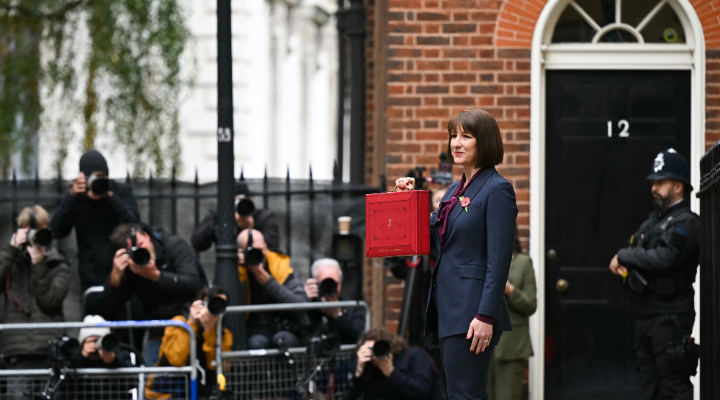
Changes to capital gains tax had been widely expected in Wednesday’s Budget announcement, with even the new headline rates well trailed in the media.
Still, the reality of this increase was sobering for investors.
The chancellor confirmed an increase in the rate paid by basic-rate taxpayers from 10% to 18% and from 20% to 24% for higher-rate taxpayers. These changes are effective immediately and align the CGT rates with those on sales of residential property.
The current annual capital gains allowance was also left unchanged at £3,000 per person.
How Does the Change Impact Investors?
UK adults have an annual ISA allowance of £20,000, an allowance which is frozen until 2030. Stocks and savings within this tax wrapper are free of both income and capital gains tax. So even if your investment in that hot tech stock goes up 500%, the government has no claim on your “capital gain”. Many people fail to fill up their annual ISA allowance. But for those whose investments breach this limit, they will have to pay tax on the gain at their marginal tax rate.
What is Capital Gains Tax?
CGT is owed when an individual sells an asset, such as a second home or shares in a company, and where that sale results in a profit or “gain”. You pay tax on the difference between what you paid for an asset and what you sell it for—minus “allowable expenses”.
What Are the Current Allowances and Rates?
There were no changes to the annual allowance of £3,000—down from £6,000 in 2023/2024 and from £12,300 in 2022/2023—so there’s not a huge amount to play with before CGT becomes liable. You then pay the tax on any profits above that amount in that tax year. The allowance resets annually on April 6 when the new tax year begins.
Could the Changes to CGT Have Been Worse?
Yes, there were rumors that the chancellor was planning an even bigger hike in CGT, to 40%. This would have aligned capital gains tax rates with the higher-rate income tax band, which is 40%.
This still leaves some room for arbitrage between income and capital gains tax rates.
Still, this Budget could have been more draconian, one fund manager argues.
“The increase in capital gains and inheritance taxes came across as measured and showed that the Chancellor had listened to a number of stakeholders,” says Emma Mogford, fund manager of the Premier Miton Monthly Income fund.
Laith Khalaf, head of investment analysis at AJ Bell, is more critical of the government’s mixed messaging about investing in Britain while putting up taxes: “Higher rates of capital gains tax deter consumers from investing in growth assets, potentially depriving them of higher long-term returns, while at the same time undermining demand for the UK stock market.”
How Much Does CGT Raise?
In the last tax year for which figures are available, 2022-2023, HM Revenue & Customs raised more than £14 billion from 360,000 people. That’s up from £8.2 billion of CGT on £56 billion of gains in the 2018/19 tax year.
“Fiscal drag”, where frozen allowances bring more people into a tax net, plus rising asset prices–UK markets are near record highs–means the reality of CGT may come home to more people in the coming years.
Sarah Coles, head of personal finance, Hargreaves Lansdown, describes the change as a “bitter blow for investors”.
“Talking about things like capital gains tax as ‘wealth taxes’ obscures the fact that many people on average incomes, who’ve invested carefully throughout their lives, can face a tax bill when they rebalance their portfolio or sell up to cover their costs later in life.
“The annual allowance of £3,000 doesn’t stretch particularly far when you’re selling an investment you’ve held for 30 years or more, so investors should consider how to protect themselves.”
How Can I Avoid Paying CGT?
Apart from ISA allowances, pensions are free of CGT, although there have been changes to the inheritance tax treatment of pensions in this Budget.
Investments held within an ISA, some venture capital trusts, shares held in Enterprise Investment Schemes (EIS) and Seed Enterprise Investment Schemes (SEIS), government bonds (gilts) and some corporate bonds are all exempt from CGT. The EIS and Venture Capital Trust (VCT) schemes have been extended to 2035.
In the “red book”, the chancellor states:
“The government is committed to creating a positive environment for entrepreneurship and will work with leading entrepreneurs and venture capital firms on how policy supports that, including the role of the existing tax schemes.”
Private cars and wine that can be stored for 50 years are also exempt, which explains the buoyant market in classic cars and posh plonk. But advisers warn that some of these exemptions could be removed in the future.
Are Any Other Sectors Affected by CGT?
The “carried interest” earned by private equity partners has long been a target for government. On Wednesday, the Budget put a 32% capital gains tax rate on this from April 2025. Separately, the government also confirmed that “non-dom” tax status would be abolished, and from 2025 the idea of “tax domicile” will be replaced.
I’m Confused by CGT, What Should I Do?
One aspect of CGT that advisers point to is that, unlike IHT, stamp duty or income tax, it’s a “voluntary” levy. Asset-rich individuals with capital gains can avoid selling assets to avoid triggering a big tax bill.
But the rules on allowances and exemptions are complicated, so a financial adviser or accountant may help to shed light on your financial position.
The author or authors do not own shares in any securities mentioned in this article. Find out about Morningstar's editorial policies.























